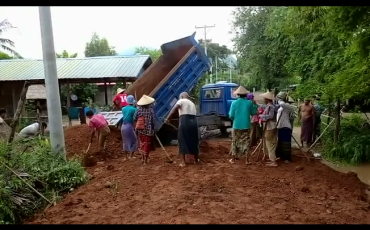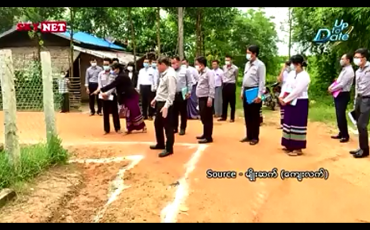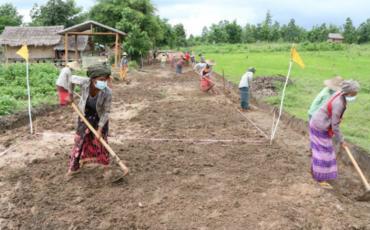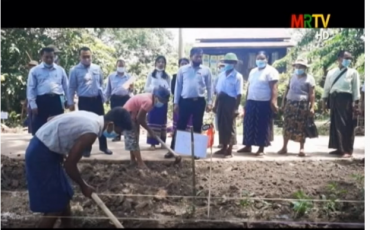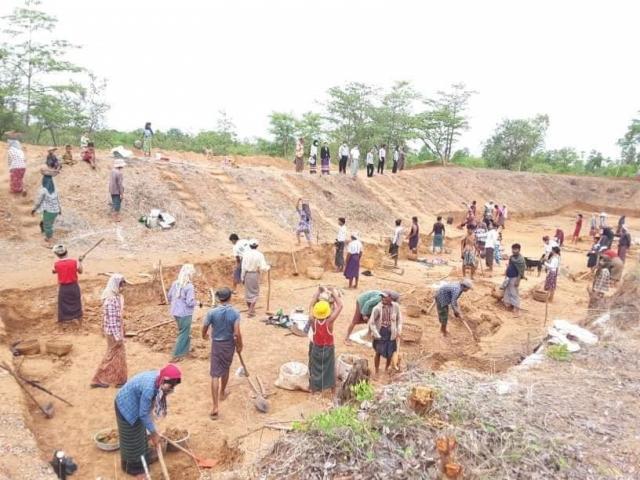
The Department of Rural Development (DRD) under the Ministry of Agriculture, Livestock and Irrigation is implementing Cash for Work (CFW) Project, as part of the government’s Covid-19 Economic Relief Plan (CERP), in 2488 villages of the country in various regions to benefit 2.7 million workers in rural areas.
As part of CERP, the Contingency Emergency Response Component, the Cash for Work project is designed by the DRD not only to upgrade the infrastructure in the villages but also to help the workers in rural areas earning wages from taking part in the development activities in their respective villages.
The DRD is taking a leading role in choosing the villages in the townships of various regions based on the Multidimensional Disadvantage Index (MDI) using census data at the township level released by the Ministry of Labour, Immigration and Population of Myanmar in 2014, and depending on the development support received from other sources, and the suggestions from the Township Project Planning and Implementation Committee composed of the community leaders, parliament members, and other concerned government departments in the townships.
With consultation of DRD and members of Township Project Planning and Implementation Committee, the communities in the villages will make their own decisions on which development activities to carry out in their villages to complete within three months of the project circle, before the end of September, 2020.
The CFW project will fund 10 million kyats each to the villages with 40 percent of the fund to buy the materials, and 60 percent to pay to the workers as daily wages.
The CFW project targets to benefit the rural communities to perform the development activities, like digging ponds, upgrading village streets, or fencing school compound, by manual labour in the villages, instead of using machinery.
The daily wages for the workers will be decided by the Village Project Committee, to pay the skilled workers according to the local daily wages rate, and to pay the unskilled workers in a range from 4800 kyats to 6000 kyats. The physical work of the project is targeted to complete in 30 working days, and the average daily wage, 5400 kyats, for unskilled labour will spend to pay to the average 35 workers each day. And the average 1111 workers from 1110 village households are supposed to earn 6 million kyats in total from taking part in the project.
In the villages where the number of available workers is exceeding the need, the selection of the worker form each household will be made according to the DRD’s criteria to support the most vulnerable households.
Just like other development projects of DRD, monitoring the activities and financial matters will be carried out by DRD’s staff members and Township Project Implementation Committees.
The project’s grievance handling mechanism will also address the grievances related to the recruitment process and in the workplace, just like other DRD projects’ typical form of a procedure for complaints, followed by consideration and management response and feedback.
The DRD aims to implement the project to support the government’s Economic Relief Plan (CERP) successfully, and as effectively as possible, by using its skills, experience and resources from doing other development projects in various regions.


